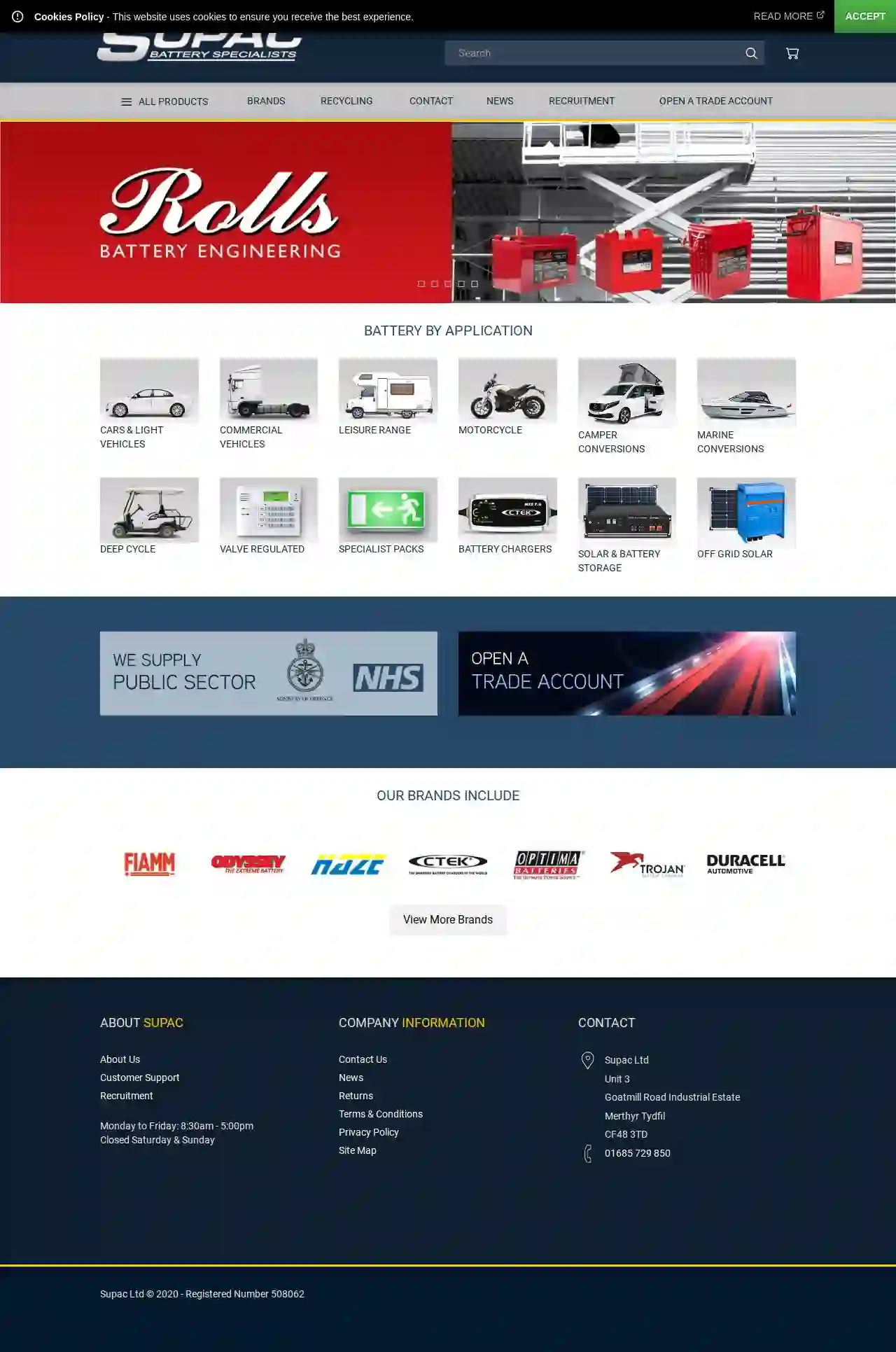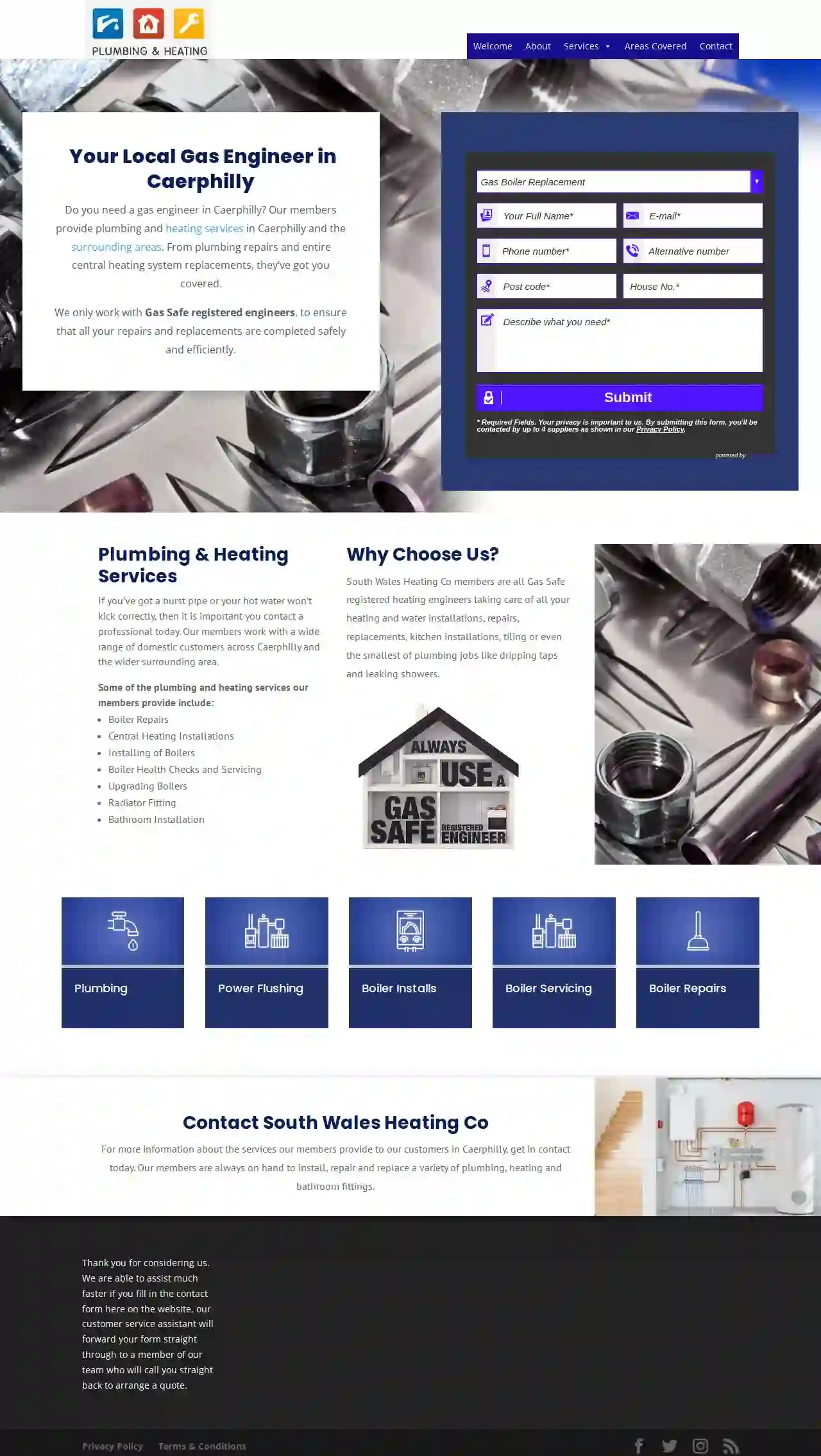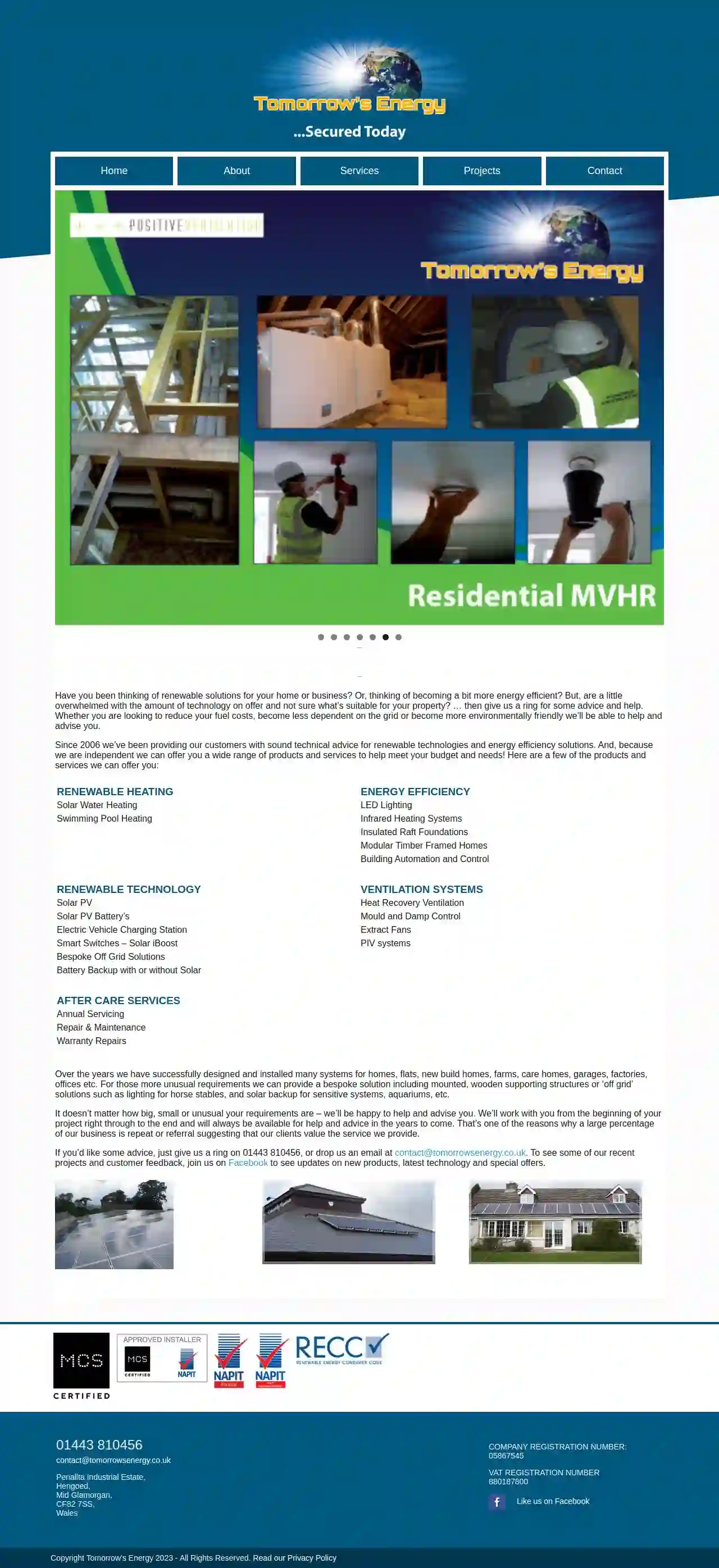Solar Installers Hirwaun
Top 10 Local Solar Installers in Hirwaun
Get multiple Solar Energy Companies quotes for your project today! Compare profiles, reviews, accreditations, portfolio, etc... and choose the best offer.

Nuvolt Ltd
St Mellons, 3 Links Court, Cardiff, CF3 0LT, GBAt Nuvolt, we focus on delivering and installing commercial Solar PV, Battery Storage, and EV Charging Solutions, expertly crafted to minimise carbon emissions and costs. Our team provides: Expert advice and customised in-house design tailored to each client, Custom solutions to enhance efficiency and increase savings, High-quality components for reliable and efficient performance, Practical guidance on system choices and funding options to fit your budget. We are dedicated to offering reliable and affordable commercial Solar PV, Battery Storage, and EV Charging solutions. As a leading renewable technology installer, our focus is on sustainable energy, helping clients reduce their carbon footprint and save on energy costs through harnessing the power of the sun.
- Services
- Why Us?
- Our Team
- Testimonials
- Gallery
Get Quote
Supac Ltd
4.818 reviewsUnit 3, Goatmill Road Industrial Estate, Merthyr Tydfil, CF48 3TD, GBSupac Ltd has been actively involved in the manufacture and distribution of batteries for over 72 years. Founded in 1948 by Electrical Engineer Hadyn Morgan, Supac & the Celtic Batteries brand proved to be a recognisable name in the battery manufacturing and distribution industry. From humble beginnings, Supac gradually expanded its operation to full scale manufacturing. The manufacturing facility produced Car, Commercial and Leisure batteries for Wales & the South West of England. Due to global changes in the late 1990s and advances in the battery market, Supac, in keeping with other UK battery manufacturers, ceased manufacturing in order to concentrate on the supply and distribution of new battery technologies. In 2009, Merthyr Tydfil became the base for a brand new 12,000 sq ft distribution facility with capacity for over 800 pallets. Strategically placed for better transport links and customer support, the new facility will enable all customers to be welcomed into an environment which will lead the way for other distributors to follow. Our extensive range also includes specialist batteries for the leisure, marine, mobility, security and medical sectors. The addition of a unique and patented battery recycling product adds to the diverse product range that Supac now offers. Family-owned and family-run, Supac prides itself on the depth of its knowledge and expertise, and welcomes customers, old and new.
- Services
- Why Us?
- Gallery
Get Quote
Eurotech Power Systems Ltd
Aberdare, GBA New Era Of Renewable Energy Take the first step to creating a more environmentally friendly future for both your family and business. At EuroTech we provide cutting edge technology designed to help you reduce your energy bills and reduce your carbon footprint. Wind Turbines Wind power is a simple and easy source of energy to harvest. We specialise in the manufacturing of small wind turbines, both horizontal and vertical, in order to suit any and all locations. EV Chargers No more lengthy OLEV grant forms, complicated pricing structures, confusing charge rates, lengths of lead etc. We’ll help you sort the whole thing. Start saving money today! Solar Panels Solar panels, also known as photovoltaic systems, use semiconductor technology to convert energy from sunlight into electricity that can power your household for free. About EuroTech Power Solutions We are at the forefront of utilising modern technology to help improve our carbon footprint. From Solar Panels to EV Charges and Wind Turbines we are striving to help both residential and commercials customers create a greener future both their families and their businesses. Get In Touch Is it worth Going Green? There are significant benefits to be had from investing in renewable energy, such as, cutting costs, reducing your carbon footprint and confidence that you will have the financial stability as the energy prices are set to sharply rise gradually in the coming years. Find out more Services What We Offer We aim to provide both residential and commercial clients with an affordable way to help reduce their carbon footprint whilst also reducing their energy bills. We have helped thousands of customers so far, why not join them today? Lets Get Started Solar Panels We are specialists in solar-powered systems. By simply utilising the power of the sun you’ll be reducing your carbon footprint and generating an additional income. EV Chargers Electric vehicles are becoming the new norm, whilst the demand out-weighs the supply in terms of charging points, why not have your own personal EV Charging point at home. Wind Turbines Wind Turbines are one of the few renewable energy sources that produce power 24 hours a day. We offer both vertical and horizontal designs to suit any size premises. Our Approach to Renewable Energy EuroTech helps commercial and residential clients take the first step into a greener world by utilising modern technology such as Solar Panels, Wind Turbines and EV Chargers. There has never been a better time to transition to renewable energy. By choosing us we can help reduce your energy bills and provide the opportunity to receive and additional income. EuroTech offers an affordable and reliable approach to renewable energy. We provide advice and guidance on both solar and wind power as well as EV Chargers, helping commercial and residential clients to utilise renewable energy to its fullest. Find Our More Commercial Clients At EuroTech our goal is to help both small and large businesses reduce your outgoings whilst simultaneously reducing your carbon footprint. Taking a greener approach to your energy consumption can boost profit margins! Learn More Residential Clients Renewable energy is a fantastic way to reduce you monthly bills whilst helping the Environment. Generate your own electricity with a solar panel or wind turbine or have your own private charging station for your electric car. Learn More
- Services
- Why Us?
- Gallery
Get Quote
Lectogic Ltd
4.85 reviewsOld School Garage, Llwynbach Terrace, Hollybush, Blackwood, Gwent, GBLectogic aims to provide businesses with high quality, energy saving solutions without any radical increase in costs. Provide home owners with high quality, sustainable living solutions without any radical increase in costs. Installation and support for solar panel systems – on your roof residential or commercial. We have highlighted here a range of ideas for you to consume less energy and save money. Many of these energy saving devices are suitable for all businesses, from factory units to modern office environments. We can advise on the suitability for your business and provide you with bespoke solutions.
- Services
- Why Us?
- Testimonials
- Gallery
Get Quote
S Energy Boiler Installation Specialist
54 reviewsGreenways, Abernant, Aberdare, CF44 0GW, GBWelcome to S Energy, the leading specialists in providing custom heating systems. We have served the communities of Cardiff and the rest of South Wales for over 24 years, with extensive experience in the installation of boilers, underfloor heating, and more. We offer a range of services, including boiler installation and servicing, LPG and oil heating, natural gas heating, and underfloor heating. Our team of highly trained professionals are able to identify your issues and provide solutions to all your home heating problems. We offer free consultations and free no obligation quotes for all of our services. Our prices are fair and competitive, ensuring that your home is provided with the most efficient energy at the most affordable price.
- Services
- Why Us?
- Testimonials
- Gallery
Get Quote
South Wales Solar
51 reviews42 Bryn Road, Markham, NP12 0QB, GBSouth Wales Solar is a family business based in South Wales, committed to providing high-quality solar panel installations, battery storage systems, and EV charging solutions to residential and commercial customers. With a focus on local and community-driven values, the company is dedicated to helping customers reduce their energy bills and carbon footprint. As an MCS-certified company, South Wales Solar ensures that all installations meet industry-expected standards of quality and reliability. The company's team of experts provides bespoke solutions, from full turnkey installations to panels-only options, and offers maintenance and support services to ensure customers' systems run smoothly. With a strong reputation for transparency, professionalism, and attention to detail, South Wales Solar has earned a loyal customer base and numerous positive testimonials.
- Services
- Why Us?
- Accreditations
- Our Team
- Testimonials
- Gallery
Get Quote
GB-Sol Ltd
4.324 reviewsTreforest Industrial Estate, Renewable Energy Works, Cardiff, CF37 5YB, GBEstablished in 1994, GB-Sol is an independent UK company, manufacturing solar PV panels and mounting systems at our spacious factory on the Treforest Industrial Estate, just north of Cardiff. A spin-out from the Cardiff University solar test centre, GB-Sol has been at the forefront of solar power generation for several decades. Today, we continue to lead in the application of solar through our stunning roof-integrated solar power systems, solar slates, ruggedised panels and marine applications. Our installations can be provided with all of the additional components you require, including optimisers, batteries, remote monitoring, arc fault protection, bird proofing and firefighter isolators.
- Services
- Why Us?
- Accreditations
- Gallery
Get Quote
EDC Renewables
519 reviewsAberdare, GBEDC Renewables: Your local South Wales Solar Install Experts. Harness the Sun with a Home Solar System. Invest the Green Way & Save the Planet. We provide complete renewable energy systems, including installation of solar panels, storage batteries and EV car chargers. Our solar panel installation services extend throughout South Wales (including Swansea, Cardiff, Neath Port Talbot, Carmarthenshire and Bridgend) for home owners, landlords, local businesses and large national companies.
- Services
- Why Us?
- Gallery
Get Quote
Plumbing & Gas
Rhondda, GBYour Local Gas Engineer in Caerphilly Do you need a gas engineer in Caerphilly? Our members provide plumbing and heating services in Caerphilly and the surrounding areas. From plumbing repairs and entire central heating system replacements, they’ve got you covered. We only work with Gas Safe registered engineers, to ensure that all your repairs and replacements are completed safely and efficiently. Plumbing & Heating Services If you’ve got a burst pipe or your hot water won’t kick correctly, then it is important you contact a professional today. Our members work with a wide range of domestic customers across Caerphilly and the wider surrounding area. Some of the plumbing and heating services our members provide include: Boiler Repairs Central Heating Installations Installing of Boilers Boiler Health Checks and Servicing Upgrading Boilers Radiator Fitting Bathroom Installation Why Choose Us? South Wales Heating Co members are all Gas Safe registered heating engineers taking care of all your heating and water installations, repairs, replacements, kitchen installations, tiling or even the smallest of plumbing jobs like dripping taps and leaking showers. Plumbing Power Flushing Boiler Installs Boiler Servicing Boiler Repairs Contact South Wales Heating Co For more information about the services our members provide to our customers in Caerphilly, get in contact today. Our members are always on hand to install, repair and replace a variety of plumbing, heating and bathroom fittings
- Services
- Why Us?
- Gallery
Get Quote
Tomorrow's Energy Ltd
Penallta Industrial Estate, Hengoed, CF82 7SS, GBTomorrow's Energy has been providing our customers with sound technical advice for renewable technologies and energy efficiency solutions since 2006. We are an independent company, which allows us to offer a wide range of products and services to help meet our customers' budget and needs. Our team of experts will work with you from the beginning of your project to the end, and will always be available for help and advice in the years to come. We have successfully designed and installed many systems for homes, flats, new build homes, farms, care homes, garages, factories, offices, and more. Whether you're looking to reduce your fuel costs, become less dependent on the grid, or become more environmentally friendly, we'll be able to help and advise you.
- Services
- Why Us?
- Gallery
Get Quote
Over 3,485+ Solar Installers on our directory
Our solar pros operate in Hirwaun and surrounding areas!
SolarCompaniesHub has curated and vetted Top Solar Contractors in Hirwaun. Find a top & reliable business today.
Frequently Asked Questions About Solar Installers
- Tax Credits: Reduce your income tax liability based on the cost of your solar system.
- Rebates: Direct cash payments or discounts on the purchase of a solar energy system.
- Net Metering: Allows you to sell excess solar electricity back to the grid for credits.
- Renewable Energy Certificates (RECs): Tradeable credits representing the environmental attributes of your solar energy generation.
Are there any financial incentives for going solar?
Do I need planning permission to install solar panels in UK?
What happens to my solar panels during a power outage?
What is net metering, and how does it work?
Are there any financial incentives for going solar?
- Tax Credits: Reduce your income tax liability based on the cost of your solar system.
- Rebates: Direct cash payments or discounts on the purchase of a solar energy system.
- Net Metering: Allows you to sell excess solar electricity back to the grid for credits.
- Renewable Energy Certificates (RECs): Tradeable credits representing the environmental attributes of your solar energy generation.